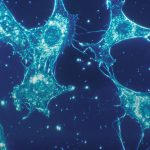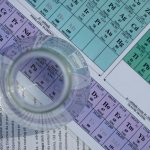AP Class Details
Advanced Placement AP Biology and AP Chemistry are popular science courses the College Board offers high school students who want to earn college credits or showcase their academic strengths. Although both courses are challenging and rewarding, they have distinct differences in curriculum, exam format, and required skills.
AP Biology
With a focus on four big ideas (Evolution, Energetics, Information Storage and Transmission, and Systems Interactions), the AP Biology class is divided into 8 main units:
- Chemistry of Life
- Cell Structure and Function
- Cellular Energetics
- Cell Communication and Cell Cycle
- Heredity
- Gene Expression and Regulation
- Natural Selection
- Ecology
The AP Biology course covers various biological topics, from cellular and molecular biology to ecology and evolution. The curriculum is designed to provide students with an in-depth understanding of the principles of life, and how living organisms interact with each other and the environment. The course emphasizes conceptual understanding and practical laboratory skills, with students expected to design experiments, analyze data, and draw conclusions. AP Biology is a challenging course that requires students to think critically, work collaboratively, and develop a deep appreciation for the complexity and diversity of life on Earth.
In addition to learning biology, students will receive hands-on laboratory work to apply scientific practices. Students will learn to collect data, as well as analyzing and reporting quantitative insights using argumentation and evidence.
To register for AP Biology, students must have prior first-year courses in biology, physics, and chemistry classes.
AP Chemistry
With a focus on four big ideas (Scale, Proportion and Quantity, Structure and Properties, Transformations, and Energy), AP Chemistry course is divided into 9 main units:
- Atomic Structure and Properties
- Molecular and Ionic Compound Structure and Properties
- Intermolecular Forces and Properties
- Chemical Reactions
- Kinetics
- Thermodynamics
- Equilibrium
- Acids and Bases
- Applications of Thermodynamics
AP Chemistry covers fundamental chemistry concepts, including atomic structure, chemical reactions, and thermodynamics. The curriculum is designed to provide students with an in-depth understanding of the properties of matter, and how they behave and interact with each other. The course emphasizes conceptual understanding and practical laboratory skills, with students expected to design experiments, collect and analyze data, and communicate their findings effectively.
Similar to Biology, AP Chemistry also has a laboratory requirement. Students need to participate in 16 hands-on labs, at least six of which are guided inquiries.
To register for AP Chemistry, students must have prior first-year courses in biology, physics, and chemistry classes. In addition, students may be required to complete an Algebra or Math class before taking AP Chemistry.
AP Exam Details
AP Biology
Exam length: 3 hours
Exam Content:
- Multiple Choice (60 questions in 90 minutes, takes up 50% of exam score)
- Free Response (6 questions in 90 minutes, takes up 50% of the exam score): Students will be asked to interpret and Evaluate Experimental Results, do a conceptual analysis, and analyze models and data.
AP Chemistry
Exam Length: 3 hours and 15 minutes
Exam Content
- Multiple Choice (60 questions in 90 minutes, takes up 50% of exam score)
- Free Response (7 questions in 90 minutes, takes up 50% of the exam score)
What is the score distribution of the two exams?
The score distribution of each AP Biology and Chemistry exam is also a good reference for students to prepare accordingly. The following is the score distribution of each in 2020 (the number is rounded up to the nearest whole number:
| Subject | 5 points | 4 points | 3 points | 2 points | 1 point |
| AP Biology | 15.0% | 23.1% | 29.7% | 21.6% | 10.5% |
| AP Chemistry | 12.5% | 17.0% | 24.5% | 23.6% | 22.5% |
Differences between AP Biology and AP Chemistry
Above, we have specified each Advanced Placement course’s course and examination content. Now, we will go into detail and compare the course content and curriculum of AP Biology and AP Chemistry. There are some key differences between the two courses:
AP Biology focuses on the study of living organisms, while AP Chemistry focuses on the properties and behaviors of matter.
To go into more detail, AP Biology studies living organisms from their cellular structure to ecological interactions. AP Biology focuses on the living world and how it functions. On the other hand, AP Chemistry is focused on behavior of matter including atoms, molecules, and chemical reactions. AP Chemistry focuses on the chemical and physical properties of matter.
AP Biology covers topics such as genetics, biochemistry, physiology, ecology, and evolution, while AP Chemistry covers topics such as atomic structure, chemical reactions, and thermodynamics.
Even though both courses require practice in laboratory skills, the nature of the experiments differs
AP Biology labs involve analyzing data from living organisms, while AP Chemistry labs focus on chemical reactions and properties. Specifically, AP Biology requires collecting and analyzing data from living organisms and biological systems. While AP Chemistry experiment examples are: determining the identity and/or concentration of an analyte in solution, or using differences in intermolecular forces to separate a mixture into its components, etc.
Who should take AP Biology vs AP Chemistry?
AP Biology and AP Chemistry can be taken together if students are interested in natural science. Both AP Biology and AP Chemistry are rigorous science courses, but they are geared toward different types of study that support students with different interests and career goals.
Students interested in studying the living world, including living organisms, genetics, and ecology, may be better suited for AP Biology. AP Biology focuses on evolution, therefore, students who know more or are interested in this topic may find the class interesting. This course is also recommended for students who plan to pursue a career in the medical field, such as doctors, nurses, or biomedical researchers. Students who enjoy hands-on laboratory work and data analysis may also find AP Biology a good fit.
On the other hand, students interested in the properties and behaviors of matter, chemical reactions, and the quantitative aspects of science may be better suited for AP Chemistry. AP Chemistry is math-heavy; students need a solid foundation in algebra and mental math to succeed in this course. This course is recommended for those pursuing engineering, materials science, or chemistry careers. Additionally, students who enjoy problem-solving and quantitative reasoning may find AP Chemistry a good fit.
In conclusion, both AP Biology and AP Chemistry are beneficial for students in preparing for their future careers and college applications. The choice between the two classes ultimately depends on the student’s personal interests and strengths. In addition to reading this article, we recommend that students talk to teachers and counselors to get advice and determine which course is right for them.
Introducing Aralia Test Preparation Bootcamp, where students can excel in standardized tests with our comprehensive approach. At Aralia, we prioritize maximizing study efficiency and accelerating score improvement through a combination of practice examinations, expert strategies, and personalized guidance. Our Bootcamp offers students the opportunity to achieve significant score improvements within a condensed timeframe by learning strategic approaches tailored to their individual needs. With instructors who are AP readers, students benefit from expert teaching and gain valuable insights into exam techniques. Furthermore, our program equips students with versatile skills and strategies that can be applied to a range of standardized tests, ensuring they are well-prepared to adapt to various exam types.

In AP Biology class, you will study the core scientific principles, theories, and processes that govern living organisms and biological systems. In addition, there will be a strategy course for the multiple-choice part of the AP Biology exam.

Are you ready to tackle the challenge of AP Chemistry? With the right preparation course, you can excel in your studies and gain valuable insight into this complex yet fascinating discipline. This course will provide you with the necessary information, tips, and tricks to help you succeed. From understanding the fundamentals to mastering the more advanced topics, our comprehensive course will equip you with everything you need to ace this subject. Get started on your path towards success today!










